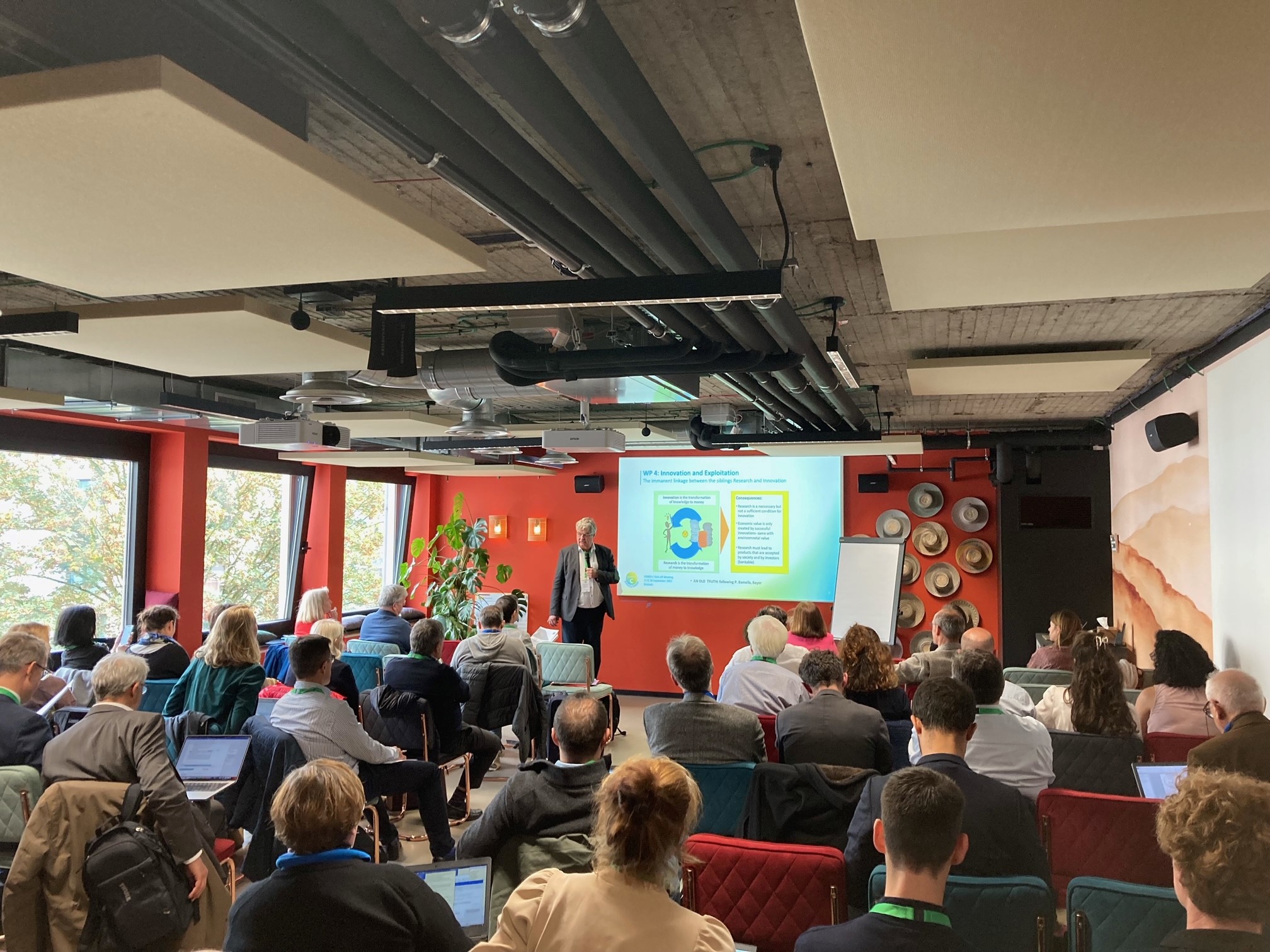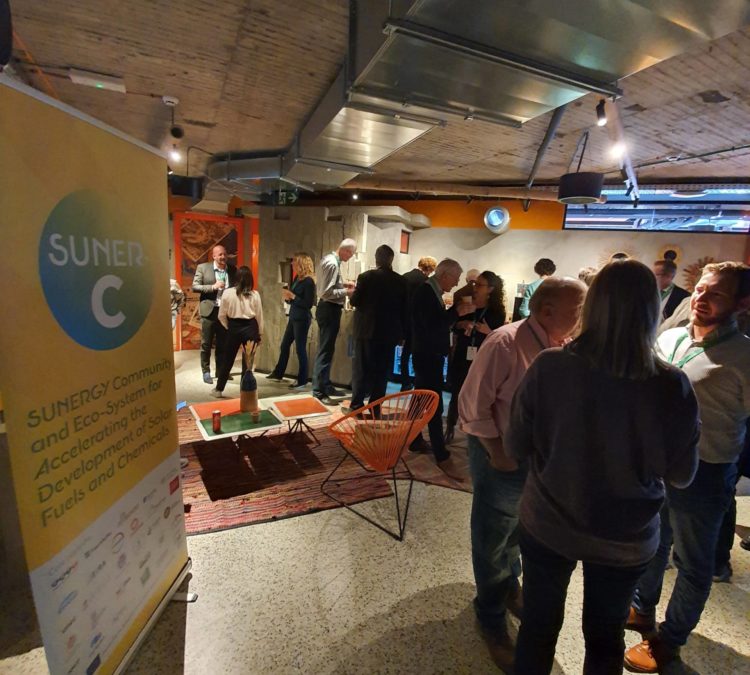SUNER-C takes off heading to a fossil-free paradigm
The kick-off meeting of SUNER-C (EU-funded project) gathered actors from industry, academia and society to draw a European strategy on solar fuels and chemicals
6th October 2022
How can we achieve the EU’s goal of becoming the first climate-neutral continent by 2050? Last 27th and 28th of September, 30 different EU partners gathered together to kick off SUNER-C, the EU-funded project (4M € over 3 years) on the next generation of energy carriers to replace fossil-fuels. The main objective is to build an ecosystem of companies, researchers, societal actors and policymakers, to accelerate the transition of technologies for the generation of solar fuels and chemicals, from the laboratory to large-scale industrial applications.

The European Union is clear to stay on a steady path to climate neutrality through its plan against greenhouse emissions, the ‘Fit for 55’ package, with the EU Green Deal as a blueprint. Unless deep cuts are made in carbon dioxide (CO2) and other greenhouse gas emissions, it will be very challenging to reach that goal. Renewable energy based on photovoltaics and wind energy needs to be supplemented with energy carriers to supply fuels to sectors and processes difficult to electrify and to create non-fossil carbon feedstock for the chemical industry. These so-called solar fuels and chemicals are most often analogous to their fossil counterparts and can be incorporated into the existing energy value chains with minimal adjustments to the existing infrastructure. These fuels are based on the transformation of abundant compounds, such as carbon dioxide, water and nitrogen, into synthetic fuels, chemicals and materials by using renewable energy.
The deputy coordinator of the project, Dr. Frédéric Chandezon, European policy officer at IRIG institute (CEA Grenoble), stated:
“The SUNER-C European project will be the cornerstone to implement and validate the concept of an action coordinated at a European scale to accelerate the development of solar fuels and chemicals as a ramp-up phase from 2022 to 2025, and prepare the path to a large scale R&I initiative after 2025. As the contribution of the community is essential, many actions of the project will be done together with all stakeholders and with the European Commission and the Member States during the 3 years that the project will last.”
The SUNER-C consortium is a unique and balanced eco-system of 31 organisations, consisting of 13 academic partners, 13 industrial companies, 4 network federations, and 1 Non-Governmental Organisation. All representatives met last 27th and 28th of September in Brussels for the official launch of SUNER-C, which started on 1st June 2022. The aim of the kick-off meeting was the review, implementation, and update of the work plan set. Besides, it was a great opportunity for all partners to meet in person, network with colleagues, and work together to maximize the impact of the project. During the first day, SUNER-C work plan was reviewed through the presentation of each work package, guided by the leader and co-leaders of the working groups. Essentially, the SUNER-C consortium will work on the development of a strategic roadmap towards the broad implementation of solar fuels and chemicals, and supporting strategies for innovation and exploitation, with a firm focus on cross-cutting and socio-technical aspects. As Prof. Maximilian Fleischer, Chief Key Expert at Siemens Energy, commented:
“Research is the transformation of money to knowledge, on the other hand, Innovation is the transformation of knowledge to money. Research is necessary but not a sufficient condition for innovation, thus our endeavor must lead to R&I in scalable technologies that are accepted by society and by investors, creating economic and environmental value”

On the second day, all the stakeholders were grouped in breakout sessions to discuss on the vision and timeline of each work package, how to implement it and to brain storm in new ideas. Furthermore, the roundtables facilitated communication at national/regional and expertise/sector levels. Through a holistic approach, SUNER-C will contribute to a circular economy by replacing fossil-derived fuels and chemicals with renewables and carbon recycling as a key element toward the EU net-zero emissions target by 2050.
📢Would you like to grasp more about the SUNER-C KoM? Check all the information of this event:

